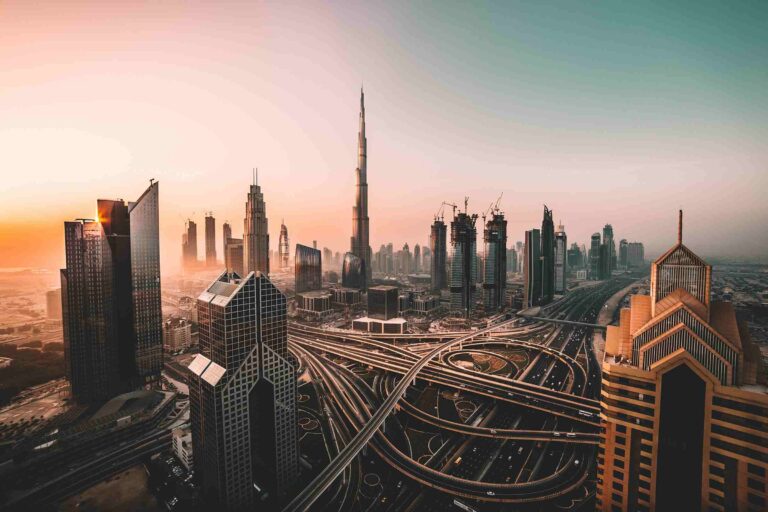Discover the historical and economical evolution of Dubai, the economic capital of the United Arab Emirates. Tiny and uninspiring to many, Dubai’s history began in the 19th century.
Nowadays, the city has become a major economic and financial arena, center of business and innovation.
Table of Contents
A very recent historical and economical evolution
Excavations at Hatta, Al Qusais and Jumeirah indicate that the area was inhabited 3,000 years before Christ.
But, Dubai was not spoken of as a proper city until 1833, the year in which the Bu Flasa tribe, headed from the Maktoum family, settled in the surroundings of the Creek, the natural river with a length of 10 kilometers. The traditional way of life was based on cattle breeding, dactyl gathering, fishing and pearl collecting.
Dubai’s economy began to boom in 1894, when Sheikh Saeed Al Maktoum boosted trade by extending taxes. One of the main products that made Dubai famous was pearls.
Early twentieth century
From the early 1900s, Dubai slowly began to grow. Initially, the population was concentrated in Bur Dubai and Deira but later also occupied the countryside.
Dubai grew thanks to its commercial activity. In 1908, there were already more than 350 specialty shops in Deira and 50 in Bur Dubai. The presence and development of these commercial activities gave rise to the current souks.
From a religious and cultural point of view, the first mosques were built, which were initially also used as schools.
Second World War
The 1940s were marked by the Second World War. The appearance of cultured pearls in the market was an addition to the events of the war.
Those were years of famine, but Sheikh Saeed Al Maktoum still managed to feed the 20,000 people in Dubai. On these dates an agreement was signed with the British Government to search for oil.
In the 1950s Dubai began selling its gold and expanded Dubai Creek, for the growth of its maritime trade.
The Awakening: The Age of Oil
The 1960s marked the awakening of Dubai. The hard work of the past decades began to pay off with the discovery of oil.
At the end of the 1960s the city already had the infrastructure to grow. Bridges, roads, electricity and water supply networks, a good telecommunications system and an airport found place in Dubai.
In 1969, Dubai began to export oil and by that year was already home to 59,000 inhabitants.
The Seventies
In the decade of the 70s the city experienced a great demographic growth. By 1977, the city already exceeded 200,000, with the population having quadrupled that figure in just 10 years.
The high price of oil allowed Sheikh Saeed Al Maktoum to start creating what is the Dubai we know today. The end of the decade saw the building of the port of Jebel Ali, the World Trade Center, the desalination plant, the Shindagha tunnel and the Garhoud bridge.
The United Arab Emirates was founded in 1971. From this point on, Dubai went hand in hand with Abu Dhabi, Sharjah, Ajman, Umm Al Quwain, Fujairah and Ras Al Khaiman.
At the end of the 20th century
From the 1980s the city prospered economically. The airport saw an expansion to accommodate the recent airline Emirates Airlines, building sports and leisure complexes and starting to think of tourism as a source of income. At this time, new deposits of gas and oil emerged in the Margham Desert.
The 1980s saw an urban boom and an effort was necessary to accommodate Dubai’s growing population. In 1990, the city reached the figure of 550,000 inhabitants.
In 1990, Sheikh Rashid bin Saeed died and his son succeeded him. His projects, even more ambitious than those of his father, led to the creation of the city we know today.
Dubai today, economic capital of the United Arab Emirates
Thanks to government efforts, currently Dubai’s economy only depends on 20% of oil. Commerce and services, including tourism, are the basis of its current economy.
The tax exemption meant that many companies began to think of Dubai as their headquarters. Today, Dubai, is a financial and commercial hub of international relevance, a bridge between East and West, and city projected into the future and with outstanding growing possibilities.
Read also: Le Fonti Global Awards, the eagerly awaited international format restarts from Dubai












